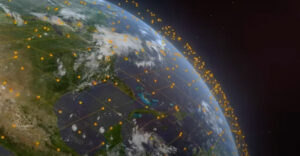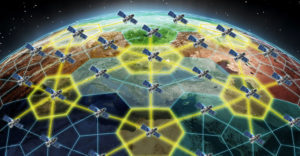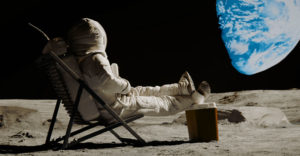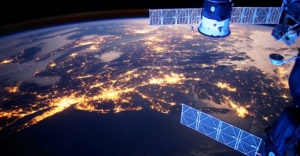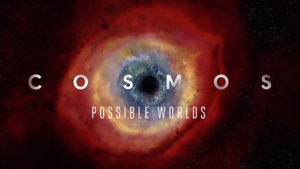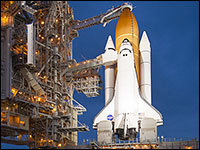
With the weather barely permitting, the U.S. space exploration program reached another milestone on Friday: Atlantis blasted off from NASA’s Kennedy Space Center on what will be the final space shuttle mission.
The flight caps 30 years of achievements including the construction of the International Space Station. Atlantis will dock with the station on Sunday.
The crew of four astronauts — Space shuttle Commander Chris Ferguson, Pilot Doug Hurley, and Mission Specialists Sandy Magnus and Rex Walheim will carry out a number of important tasks during the shuttle’s 12-day mission. They will deliver the Raffaello multipurpose logistics module filled with supplies and spare parts to the station. They will also fly the Robotic Refueling Mission to test tools needed to robotically refuel satellites in space.
In addition, the crew will bring back an ammonia pump that recently failed on the station so that engineers can improve the design for future spacecraft.
End of an Era
Despite the glow of accomplishment, scientists, space buffs and many in the business community as well are mourning the lost opportunities the program’s end represents.
“For years, NASA was the pinnacle of America’s scientific efforts and achievements,” Charles King, principal with Pund-IT, told TechNewsWorld.
However, that perception might be rooted in his generation’s experiences, he acknowledged.
“For baby boomers, exploring space was the ultimate scientific goal, and I realize that the world has moved on to other things,” said King.
Still, “it seems to me that now, when the level of scientific understanding among Americans is so low, eliminating such a high-profile program is a big mistake. What we need are programs that can engage people’s imaginations and get kids to study science,” he suggested.
“There’s something to be said for keeping people’s heads in the stars.”
There is so much about the universe that humankind does not understand, observed Seth D. Ginsberg, president of Global Healthy Living Foundation and self-described space geek.
The loss of the program could have an impact on advances in medical science, he told TechNewsWorld.
“Experiments done in space have translated to gains in medicine,” noted Ginsberg. “I just hope that the budget cuts to NASA will translate into boosts in the budget for healthcare.”
‘Truly Remarkable Feat’
The Space Shuttle program has brought many benefits that deeply impacted our everyday lives, observed Jin Kang, assistant teaching professor in Drexel University’s College of Engineering.
“Spinoffs of shuttle technologies include a miniature ventricular pump for the heart — derived from the fuel pumps, and insulation and composite materials that are used in households, cars and aircrafts,” he told TechNewsWorld.
However, the science community will miss the shuttle program most of all, said Kang. Without the shuttles, neither the Hubble Telescope nor the International Space Station would have been possible, but its influence goes far beyond those historic projects.
“In addition to providing a weightless environment for the scientific experiments, growth of biological organism experiments in space, and innovative material development, the shuttle program also provided a means for the young students to grow their dreams of space exploration,” noted Kang. “There were many programs that enabled students to develop a space system that can be put into orbit onboard an orbiter.”
You can imagine how excited the children would be to have something that they made flown in space, he added.
The retirement of the Shuttle fleet “leaves a gaping hole in easy access to space for science experiments, as well as transportation of astronauts,” concluded Kang. “It was a truly remarkable feat of our time.”










